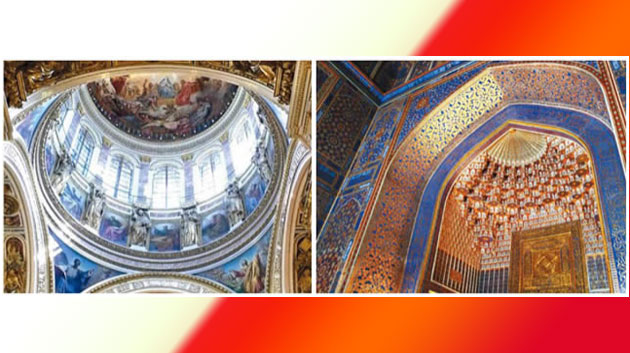Christianity vs. Islam (Part 3)
A Brief Look at The Basic Principles of Christianity and Islam
In the world of myths and literature, the prototype of human relations, by which people compete as rivals, is that of “brothers”. As can be seen in the table on the left, both Christianity and Islam originally arose from Judaism, have much in common, and are very similar to each other. They look just like brothers, which is why they may compete and clash from time to time.
The main commonalities are that they both originated in the Middle East and also have common holy lands. They are both monotheistic religions, believing in just one personified God, and are religions that have just one supreme book of revelations in which their followers have recorded their absolute teachings (the Bible and the Qur’an). Further, Islam takes the position that God in the Bible and Allah are the same and also includes part of the Bible in its sacred book (Christianity does not acknowledge that its God is the same as Islam’s God).
In terms of geographical distribution, Christianity boasts over 2.2 billion believers in North America, Europe, and South America. Islam has over one billion believers in Asia and over 400 million in Africa. Compared with Judaism and its 15 million, both religions are world religions, extending beyond the confines of race.*
Their universal religious principles have allowed them to go beyond the confines of their culture, and they can lead many to redemption regardless of race. Christianity preaches love for the Lord God and neighborly love, and Islam honors equality under God, peace, and tolerance. The universal teachings of both religions function in this world as guidelines for personal behavior and principles to sustain society, in addition to delivering hope to people with regards the next world (heaven).
However, despite these universal principles of love and peace, the Christian and Islamic worlds have continued to clash for a thousand-and-something years. In fact, non-universal elements have worked their way into both religions, and those sectarian values have caused people to clash.
Some Differences and Surprising Commonalities
* The author used the Encyclopedia Britannica (2009 edition) as a source for the amount of religious believers.
(From the top: the total number of believers, their main sects, when and where they formed, how they formed, their objects of worship, sacred books, holy lands, characteristics of their doctrine, the relationship between religion and politics, Islam as seen by Christianity… or Christianity as seen by Islam…)
Christianity
Protestant churches (approx. 402 million)
The Orthodox Church (approx. 270 million)
“The Old Testament” (in common with Judaism)
The Vatican (Vatican City)
Santiago de Compostela (Spain), etc.
* Protestants do not have holy lands.
Separation of church and state
Since the 17th century, the state has not been tied to any particular religion so as not to oppress other religions.
- Because Muhammad is neither a prophet nor a Christian, he went to hell upon his death.
- Some of Allah’s teachings that appear in the Qur’an are of a low level.
- Polygamy is an evil doctrine.
- Islamic law attaches little importance to human rights (e.g. stoning).
- God gave the land of Canaan (present day Palestine) to the Jewish people. The more Muslims are banished from that land, and Israel’s national interests are protected, the faster Jesus will be resurrected (this is the thinking of the right-wing Christians, said to be as many as 80 of America’s total 300 million Christian believers).
Islam
Shia (about 10% of all Muslims. They were relatively numerous in Iran and Iraq, but they suffered from oppression in Iraq under the Hussein regime.)
Part of “The Old Testament” (“The Law of Moses” and David’s “The Book of Psalms”)
Part of “The New Testament” (The “Gospel” of Jesus)
Medina (Saudi Arabia)
Jerusalem (Israel)
Unification of religion, politics, and the military
The degree of the unification differs depending on the country, but it remains as an ideal in the Islamic world still.
- God is the only being, thus a Trinity is not possible. Nor is Jesus a God.
- God is something that cannot be represented by a statue. Believers think the worship of God as a statue is idolatry and sacrilege in religions such as Catholicism.
- We recognize Moses and Jesus as prophets, but Muhammad is ultimately the greatest one of all. Hence Islam is a much more complete religion than Christianity.
- Muhammad, who was both a victor on the military and political fronts, is greater than Jesus, who suffered repeated defeats and humiliations in this world until the authorities sentenced him to death.



















